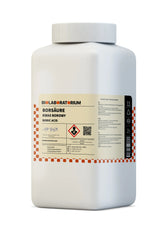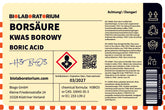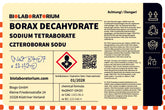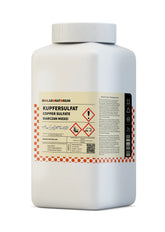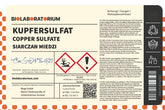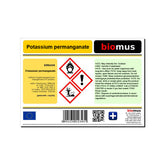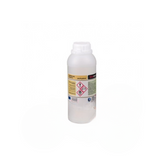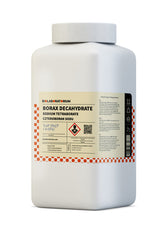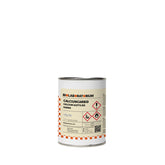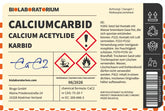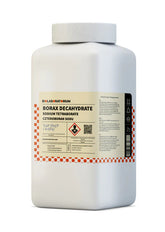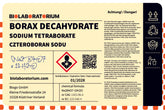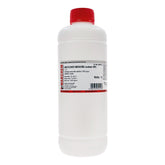Albumin – A Versatile Helper in Household and Industry
Albumin is a fascinating protein that plays an important role in many areas of our daily lives and industry. As one of the most common proteins in the human body, it has a variety of useful properties that make it a valuable component of numerous products. In this blog post, we want to take a closer look at the properties, applications, and safety of albumin.
What is Albumin?
Albumin is a protein that is widespread in mammals, including humans. It is primarily produced in the liver and makes up about 60% of the total protein content in blood plasma. Albumin fulfills important functions in the body, such as transporting substances, maintaining fluid balance, and protecting against oxidative stress.
In addition to its importance for the human body, albumin also has numerous technical applications. Due to its unique chemical and physical properties, it is used in a variety of products and industrial processes.
Properties of Albumin
Albumin is a relatively small protein with a molecular mass of about 66,500 Daltons. It consists of a single polypeptide chain folded into a complex three-dimensional structure. This structure gives albumin a number of special properties:
Solubility and Stability
Albumin is very soluble in water and remains stable even at high temperatures, extreme pH values, and in the presence of chemicals. This property makes it an ideal component for many formulations and product applications.
Binding Capacity
Albumin can bind and transport a variety of molecules, such as fatty acids, hormones, medications, and heavy metals. This is particularly important for substance transport in the body.
Osmotic Pressure
Albumin significantly contributes to the colloid osmotic pressure in blood plasma and thus helps maintain the body's fluid balance.
Antioxidant Effect
Albumin has antioxidant properties and can bind free radicals, thereby protecting the body from oxidative stress.
These diverse properties make albumin an extremely valuable and versatile protein with numerous application possibilities.
Technical Applications of Albumin
In addition to its importance for the human body, albumin also has diverse uses in industry. Some examples of technical applications of albumin are:
Cleaning Agents and Detergents
Due to its surface-active properties, albumin is used in cleaning agents and detergents to improve wetting ability and soil removal.
Cosmetics and Personal Care
In cosmetic products such as creams, lotions, and shampoos, albumin serves as a moisturizer, emulsifier, and stabilizer.
Pharmaceutical Applications
In medicine, albumin is used to treat deficiencies, burns, and shock. It is also used as an excipient in medications.
Food Industry
Albumin is used in food production as an emulsifier, stabilizer, and thickener, for example in baked goods, beverages, and desserts.
Technical Processes
In industrial processes, albumin serves as a flocculating and separating agent, coating material, and auxiliary in the production of paper, textiles, and adhesives.
Research and Development
In laboratories and research work, albumin is used as a standard material for analyses, test procedures, and cell cultures.
The versatility of albumin is evident in this wide range of applications in household, industry, and science.
Safety and Handling of Albumin
Although albumin is generally considered safe, some aspects must be considered when handling and using it:
Allergic Reactions
In rare cases, sensitive individuals may experience allergic reactions to albumin. Therefore, caution is advised, especially in medical applications.
Contamination
Since albumin is often derived from animal sources, there is a possibility of microbiological contamination. Therefore, appropriate purification procedures and quality controls are important.
Storage and Transport
Albumin must be stored and transported at appropriate temperatures to avoid quality losses.
Disposal
Excess or expired albumin must be disposed of properly to avoid environmental pollution.
By observing these safety aspects, albumin can be used safely and effectively in a wide range of applications.
Conclusion
Albumin is a fascinating protein with a variety of useful properties. From the human body to industry – albumin is a true all-rounder. Its solubility, binding capacity, osmotic effect, and antioxidant properties make it a valuable component in numerous products and processes. Through careful handling and attention to safety aspects, albumin can fully utilize its advantages and make an important contribution in household, industry, and research.

